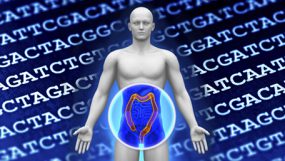
Having a family health history of colorectal cancer makes you more likely to get colorectal (colon) cancer yourself.
Knowing your family health history of colorectal cancer and sharing this information with your doctor can help you take steps to lower your risk. If you have multiple relatives who have been diagnosed with colorectal cancer or relatives who have been diagnosed at a young age (before age 50), your doctor may change your medical management to prevent colorectal cancer or catch it as early as possible. If you have been diagnosed with colorectal cancer, it is important to tell your family members.
Based on current recommendations, most people start colorectal cancer screening at age 45, but if you have a family history your doctor may recommend the following:
- Colonoscopy starting at age 40, or 10 years before the age that the immediate family member was diagnosed with cancer.
- More frequent screening.
- Colonoscopy only instead of other tests.
- In some cases, genetic counseling.
Precancerous colorectal polyps are abnormal growths in the colon or rectum that can turn into cancer if they are not removed. However, not all polyps turn into cancer. If you have been diagnosed with certain types of colorectal polyps, your doctor may recommend starting colonoscopy screening earlier. Be sure to let your family members know about your history of colorectal polyps.
When collecting your family health history
- Include your parents, sisters, brothers, children, grandparents, aunts, uncles, nieces, and nephews;
- Make sure to document both your mother’s side of the family and your father’s side of the family;
- Document which relatives have had cancer, the type(s) of cancer they have had, and the ages at which they were diagnosed;
- Report any history of polyps that each relative has had;
- List the age and cause of death for relatives who have died;
- Share your family health history with your doctor; and
- Update your family health history regularly and alert your doctor to any new diagnosis.
If you are concerned about your personal or family health history of colorectal cancer, talk to your doctor. If you need help getting started, visit the Surgeon General’s Family Health History tool.
Family Health History of Lynch Syndrome
CDC’s mobile app My Family Health Portrait: Cancer Edition (MFHP Cancer) helps you collect your family’s history of cancer and can help you understand your risk for colorectal cancer. Android users can download the app from Google Play, and iOS users can download the app from the App Store.
Source: https://www.cdc.gov/genomics/disease/colorectal_cancer/family_history_coloretal.htm

